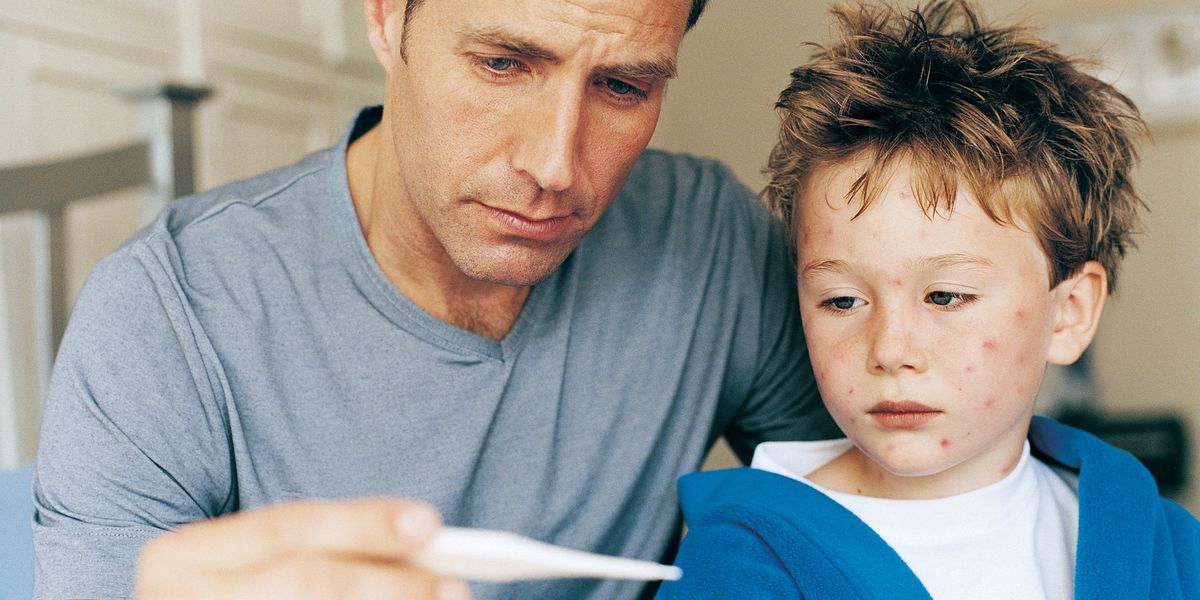Introduction
Roseola Infections, colloquially referred to as the “sixth disease,” is a common viral infection affecting children under the age of two. While the majority of cases are relatively benign, understanding its nuances is crucial for parents to ensure their child’s well-being.
Symptoms: Unveiling the Manifestations
- High Fever: One of the hallmark symptoms of roseola is a sudden, high fever that can exceed 103°F. This fever typically persists for 3-7 days or may come and go during this period.
- Rash: Following the resolution of the fever, children may develop a distinctive rash. This non-itchy rash is raised, spotty, and reddish in appearance, primarily manifesting on the neck and trunk. It can last for a few hours to a few days.
- Additional Symptoms: Alongside the fever and rash, children may exhibit restlessness and irritability. Gastrointestinal symptoms such as diarrhea, a cough, and droopy or swollen eyelids may also accompany the fever.

Causes: Unraveling the Culprits
Roseola is primarily triggered by the human herpesvirus 6 (HHV-6) and, less commonly, human herpesvirus 7 (HHV-7). These viruses belong to the herpesvirus family and typically remain latent, or turned off, within the child’s body.
The incidence of roseola is most prevalent in infants and children aged between 6 and 24 months. The mode of transmission is typically through respiratory secretions, making it highly contagious among young children.

Diagnosis: Identifying Roseola
Diagnosing roseola often relies on the recognition of characteristic symptoms by healthcare professionals. Laboratory tests are typically unnecessary, as the distinctive combination of high fever followed by a rash is often indicative of the condition.
Healthcare providers may conduct blood or urine tests if the child develops additional symptoms or if the illness becomes severe. However, the absence of a specific antiviral treatment means that the focus is primarily on managing the symptoms.

Treatment: Navigating Care for Roseola
Given that roseola is caused by a viral infection, antibiotics are ineffective in treating the condition. Medical professionals typically recommend managing the symptoms to enhance the child’s comfort.
- Fever Management: To alleviate the high fever, doctors often suggest over-the-counter medications such as acetaminophen or ibuprofen. These medications can help reduce fever and alleviate discomfort.
- Fluid Intake: Encouraging the child to stay hydrated is crucial. Increased fluid intake helps prevent dehydration, especially if the child experiences diarrhea.
- Isolation and Containment: Due to its contagious nature, healthcare providers advise parents to isolate the child from others until the fever has been absent for at least 24 hours. After this period, the child can resume interaction with other kids, even if the rash persists.
- Monitoring for Complications: While roseola is generally mild, in some cases, a very high fever may lead to seizures. Parents should be vigilant and seek prompt medical attention if their child experiences seizures.

Roseola vs. Common Symptoms
| Aspect | Roseola | Common Symptoms |
|---|---|---|
| Age Group Affected | Children under age 2 | – |
| Causative Virus | Human herpesvirus 6 or 7 | – |
| Main Symptom | Sudden, high fever | Varies |
| Characteristic Rash | Raised, spotty, non-itchy rash | – |
| Contagious Period | Until fever-free for 24 hours | – |
| Treatment Approach | Symptomatic relief | Varies based on the cause |
Understanding the Contagious Nature
Roseola is highly contagious, particularly during the fever phase. Parents must adhere to the guidance provided by healthcare professionals to prevent the spread of the virus. Isolating the child during the contagious period helps protect others, especially those who may be more vulnerable to infections. Explore other health issues
Potential Complications
While roseola is generally considered a mild viral illness, in rare instances, a very high fever can lead to seizures. Parents should be aware of the signs of seizures, including short-term loss of consciousness, jerking limbs, and loss of bladder and bowel control.
If a seizure occurs, immediate medical attention is crucial. It’s important to note that most seizures in young children are brief and do not cause lasting harm.
Conclusion
In conclusion, understanding roseola empowers parents to navigate this common childhood infection confidently. Recognizing the symptoms, seeking timely medical advice, and implementing appropriate care measures contribute to a smoother recovery for the child. While roseola is generally a self-limiting condition, informed parenting ensures the well-being of the child and those around them.




